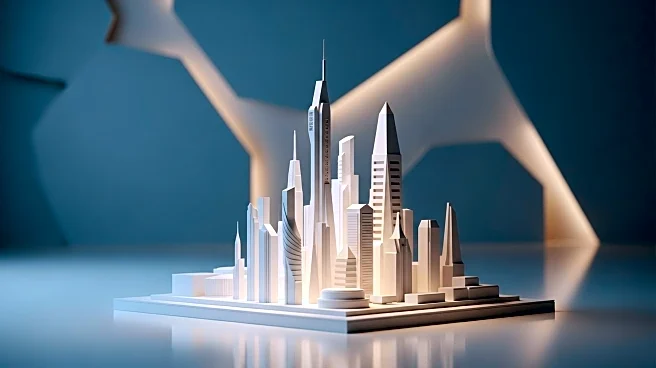What is the story about?
What's Happening?
The Venice Biennale of Architecture is hosting a symposium titled 'Architecture in the Immediate,' focusing on the role of architecture in reflecting and addressing current global crises. The event is organized by the Qatar Pavilion, featuring the exhibition 'Beyti Beytak. My Home is Your Home. La mia casa è la tua casa,' which examines hospitality, community, and belonging in the built environments of the Middle East, North Africa, and South Asia. Curators Aurélien Lemonier and Sean Anderson, along with Dominique Jakob, aim to explore how architecture can serve as a diplomatic tool and a means of fostering peace. The symposium will discuss the creative and strategic potential of architecture in responding to crises and promoting humanist values.
Why It's Important?
This symposium is significant as it highlights the potential of architecture to influence societal change and address pressing global issues. By focusing on hospitality and community, the event underscores the importance of architecture in fostering connections and understanding across cultures. The discussions aim to inspire architects and designers to consider the broader implications of their work, promoting spaces that encourage human interaction and collective well-being. This approach could lead to more inclusive and sustainable architectural practices, benefiting communities worldwide.
What's Next?
The symposium 'Architecture in the Immediate' is scheduled to take place at the ACP-Palazzon Franchetti in Venice on October 9, 2025. It will feature comparative perspectives on projects presented by the Qatar Pavilion and other voices contributing to the discourse on generosity and hospitality in architecture. The event aims to spark conversations about the future of architecture and its role in addressing global challenges, potentially influencing future biennales and architectural practices.
Beyond the Headlines
The symposium's focus on hospitality and community in architecture raises ethical and cultural questions about the role of design in shaping human experiences. By advocating for spaces that promote generosity and human connection, the event challenges traditional notions of architecture as merely functional or aesthetic. This shift towards a more human-centered approach could lead to long-term changes in how architects and designers conceive their projects, emphasizing the importance of social responsibility and cultural sensitivity.
















